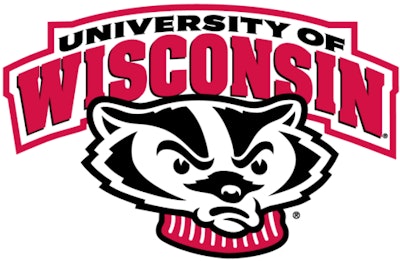
The University of Wisconsin is refusing to disclose even redacted copies of its current athletes’ NIL agreements, contending that doing so would “jeopardize the competitive position of the university” and is ultimately “detrimental to the public interest.”
The UW asserted this position in a lengthy denial to a recent public records request by Sportico, which sought written agreements between Badger athletes and the school since the beginning of last year.
“In the ultra-competitive landscape of Division I intercollegiate athletics, your request would force disclosure of information that allows the university to be competitive in the Big Ten Conference and at the national level,” UW’s public records custodian wrote in an email last week. “The public has an interest in a strong and self-sustaining university system. The success of teams within the Division of Intercollegiate Athletics ensures the viability of all athletic programs, supports both the reputation and financial standing of the university as a whole, and is an economic driver for the city of Madison and state of Wisconsin.”
"There is one such agreement that may be of particular sensitivity: a two-year, revenue-sharing contract the school reportedly entered into with former Badger defensive back Xavier Lucas, before denying his request to enter the transfer portal," wrote Daniel Libit of Sportico. "In a post on X on Friday, Darren Heitner, Lucas’ attorney, described the agreement as a '[Memorandum of understanding] conditioned on approval of the House [v. NCAA] settlement.' Despite the university’s refusal to grant his request, Lucas is still transferring to the University of Miami for the fall 2025 semester, a move that has been tacitly approved by the NCAA.
Related: Attorney Accuses Wisconsin of Blocking Football Player Xavier Lucas From Entering Transfer Portal
Although Sportico didn’t specifically ask for Lucas’ or any future revenue-sharing agreements, Wisconsin nonetheless contends “the information sought is relevant to current and future negotiations with student athletes and recruits,” Libit reported. The school argues that disclosure would create an “especially stark” disadvantage in its efforts to compete with private institutions and schools subject to “less stringent open records requirements.”
Related: University of Wisconsin Implicates University of Miami in Transfer Portal Scandal
According to Libit, the UW cited, as part of its denial, a 2006 state appellate court ruling in a public records lawsuit, State of Wisconsin v. Beaver Dam Area Development Corporation, in which the Wisconsin attorney general had sued a nonprofit corporation that was doing business with a local municipality, contending that it should be subject to the state’s open records and open meetings laws. In overturning a lower court’s ruling for the state, the appellate court noted that the judiciary had long recognized the need to balance the harms and benefits of public disclosure.
Bill Lueders, president of the Wisconsin Freedom of Information Council, criticized the university’s reasoning for denying Sportico’s request, calling it “absurd.” He pointed out that there is no factual evidence to support the claim that disclosing redacted NIL agreements would put UW at a competitive disadvantage, especially if sensitive details such as athletes’ names or exact financial terms were withheld.
"As part of its denial, UW also cited student privacy laws, a common response used by many public universities in refusing to disclose athlete NIL agreements," Libit wrote. "A number of state NIL laws now specifically exempt endorsement agreements between college athletes from being subject to open records laws. Wisconsin, however, is in the minority of states that has yet to adopt an NIL law, with a state assembly bill proposed last February failing to pass."




































